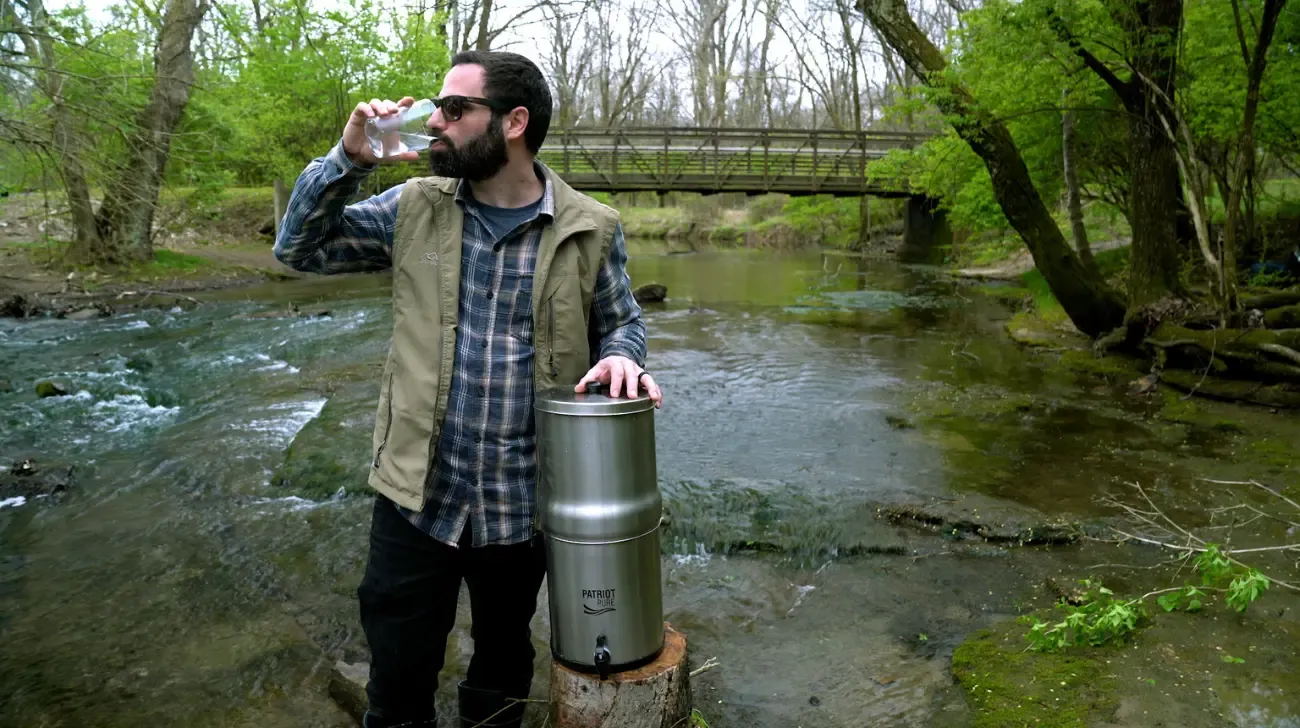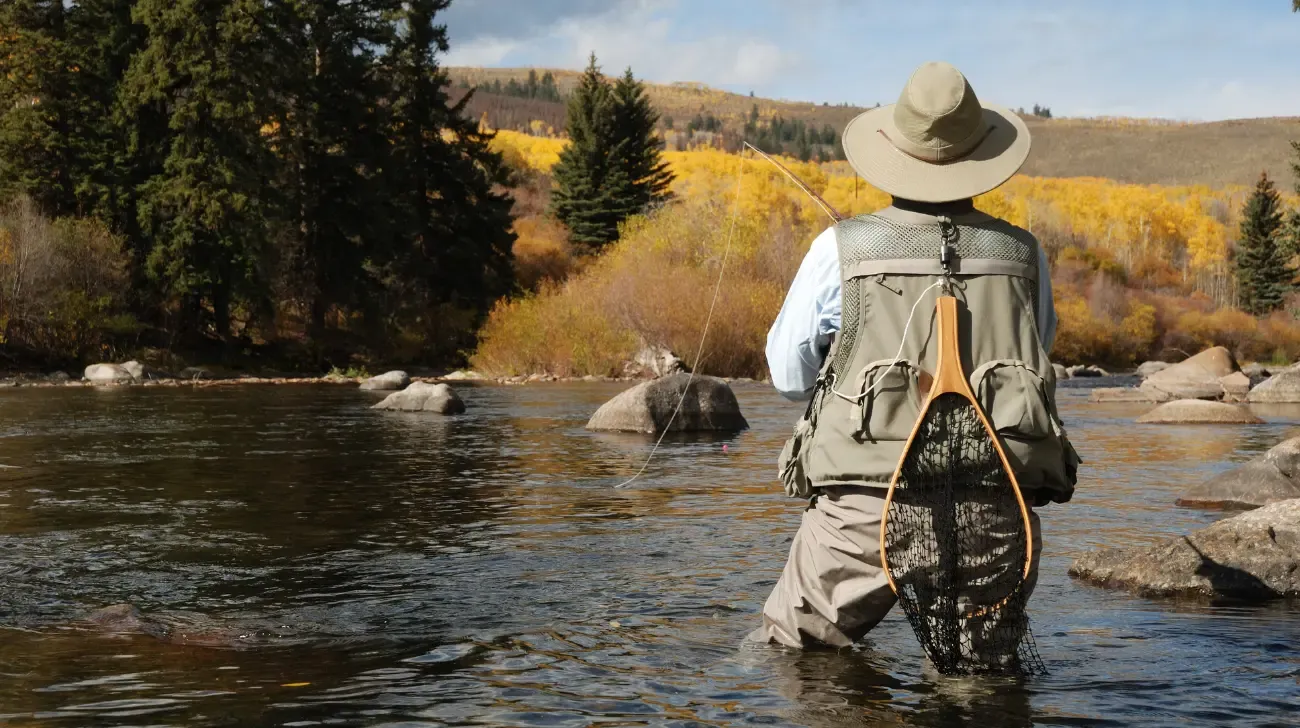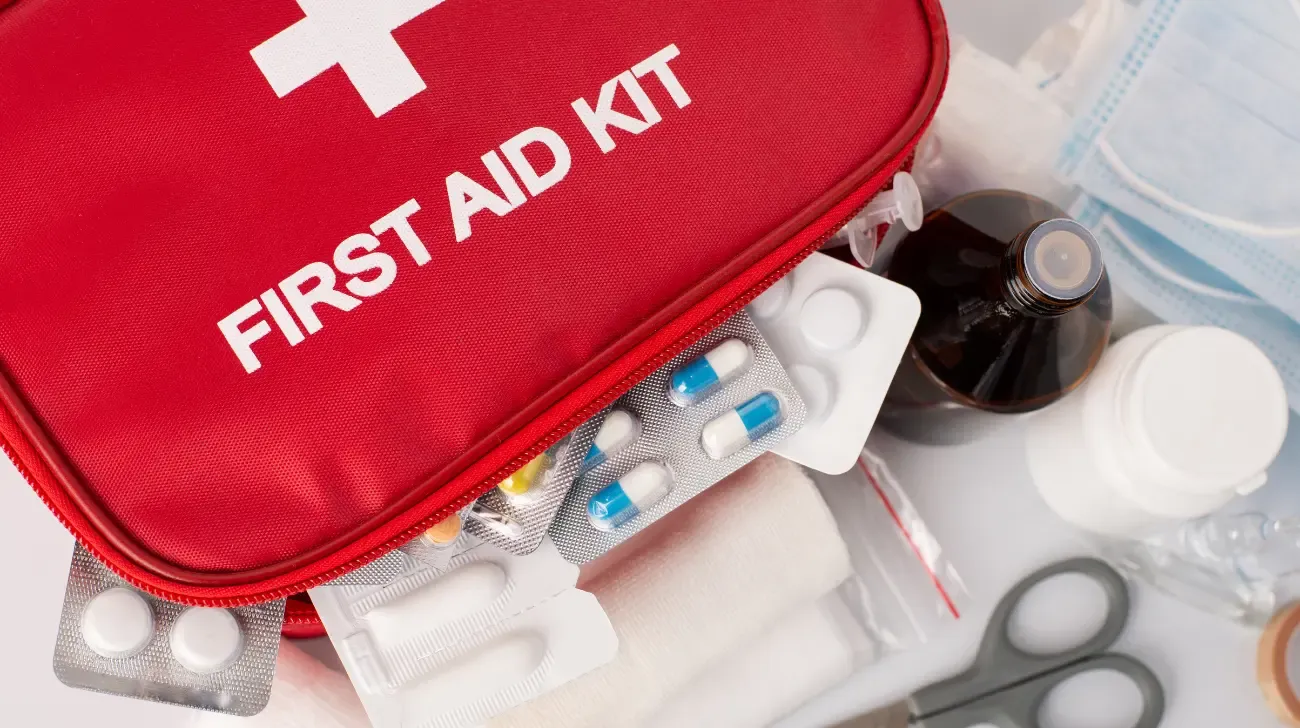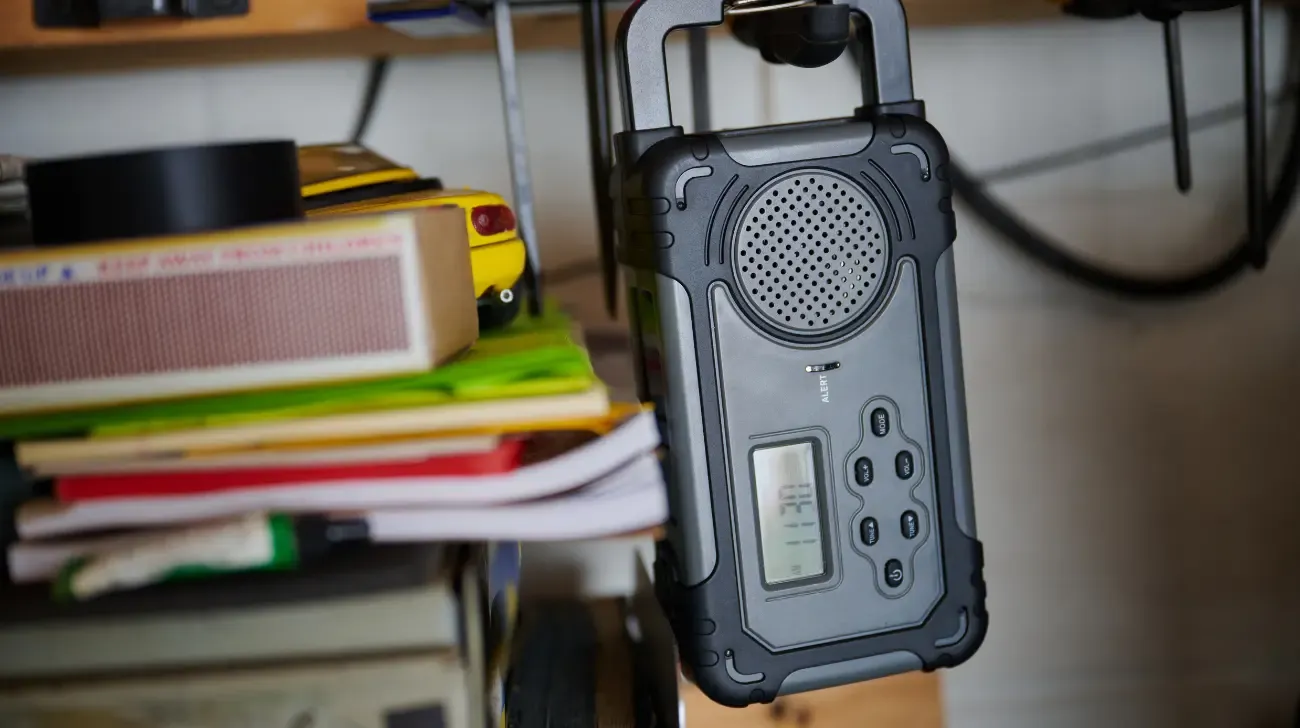Your Top 10 Survival Skills - We Asked, You Answered

What's the #1 Survival Skill You'd Rely On?
When we asked our 4Patriots Facebook community to weigh in on the most important survival skills to master, you all delivered. From practical skills like fire starting and gardening to overlooked tactics like navigation and situational awareness, your answers proved something we’ve known all along:
You don’t just “get it” — you live it.
Below are the 10 most recommended skills from folks like you. Plus, a few extras we think are too important to leave off your list. Whether you’re just starting to prepare or looking to sharpen what you already know, this guide gives you a solid foundation.
Most Recommended Survival Skills
1. Fire Starting
Learning to make a fire isn’t just a cool trick, it’s a survival essential. Fire gives you warmth when the cold creeps in, boils water so you don’t get sick, cooks food so you can keep moving, and lights up the dark when the sun goes down. It even helps signal for rescue if you’re stuck. In short? Fire keeps you alive. If there’s one skill to practice until it’s second nature, this is it.
⭐ Customer tip: Fire isn’t something you wanna figure out in the middle of a cold night. Practice building a fire in all weather: wet, windy, and cold. Don’t wait until you need it.
Things to focus on:
- Master spark-based tools like flint and steel, magnesium rods, and solar fire starters.
- Store a rechargeable arc lighter in your go-bag as a backup fire starting option.
- Learn friction methods (bow drill, hand drill) just in case you lose your gear.
- Keep waterproof tinder in your go-bag or pocket.
- Practice using fire for signaling: smoke by day, flames by night.
- Keep a portable camp stove handy to cook over fire when electricity isn't an option.
2. Water Filtration & Purification
Clean water is non-negotiable, and you can only carry so much. Without it, you’ve got about three days — maybe less if it’s hot or you’re working hard. That’s why learning how to filter and purify water is one of the smartest things you can do. Whether you’re pulling from a stream, rain barrel, or roadside puddle, you’ve got to know how to make it safe. Have options like filtering, boiling and purification tablets, and know how to use ’em. Because in an emergency, dirty water can be just as dangerous as no water at all.
⭐ Customer tip: Always have a backup to your backup. One busted filter shouldn’t be the end of your drinking water. Redundancy saves lives.
What to practice:
- Learn how to use portable water filters, purification tablets, and boiling.
- Understand how to chemically treat water from ponds, rivers, and rain barrels.
- Keep backup purification gear in every bug-out bag and vehicle.
Ways to purify water:
- Boiling (kill bacteria and viruses). A solar water heater is a great option.
- Portable filters (like Patriot Pure Personal Water Straws or gravity-fed water filtration systems).
- Chemical purification (iodine tablets, chlorine dioxide).
- DIY solar stills in dry areas.

3. Shelter Building
Exposure can take your life faster than hunger or Shelter keeps you alive when the weather turns ugly. Cold, rain, wind, even the hot sun wear you down fast if you’re caught out without protection. Knowing how to build a shelter from tarps, branches, or whatever’s around gives you a safe place to rest, stay warm, and recover. It doesn’t have to be fancy, just strong enough to keep you out of the elements and hidden if needed. Practice now, so you’re not figuring it out in the middle of a storm.
⭐ Customer tip: A few tarps, some cordage, and a little know-how can turn a bad night into a safe one. You don’t need fancy or complicated gear, just practice.
Shelter basics:
- Learn to build a lean-to or debris hut using branches, tarps, or whatever’s on hand.
- Use your vehicle or supplies like scrap wood and rope to create wind-blocking barriers.
- Learn how to insulate using leaves or snow.
- Test your shelter overnight in different seasons.
- If you're bugging in, make sure your home can handle extreme cold or heat.
4. Food Acquisition
In a long-term event, you can’t count on grocery stores. Hunting, fishing, trapping, and foraging aren’t just old skills, they’re lifelines in a crisis. You don’t need to be an expert, but you do need to know how to find, prepare, and store food safely when supplies are gone. Add in a little know-how with wild edibles and basic cooking, and you’ll never go truly hungry.
⭐ Customer tip: Stocking up on emergency food is smart. But learn to garden, fish, trap, and forage too. You might need to feed yourself without a pantry one day.
Food skills to build:
- Gardening and seed saving.
- Fishing and basic trapping.
- Foraging safe edible plants (and knowing which ones NOT to eat).
- Preserving food: dehydration, canning, vacuum-sealing.
- Pack cookware in your bug-out bag for boiling, grilling, and storing food safely.

5. Personal Security & Self-Defense
In a true emergency, the rules can change fast... and so can people. That’s why personal security matters. Being able to protect yourself, your family, and your supplies is just as important as storing food and water. It’s not about looking for trouble. It’s about being ready if it finds you. From knowing how to use a weapon safely to setting up basic home defense, this is one skill you don’t want to skip.
⭐ Customer tip: Owning a weapon don’t mean much if you don’t know how to use it safe and right. Train with it until it’s second nature.
Defensive skills worth learning:
- Firearm safety and maintenance.
- Hand-to-hand self-defense.
- Fortifying your home (locks, cameras, safe rooms).
- Situational awareness.
- Practice regularly at a certified range.
- Learn how to clean and store your firearm properly.
- Get comfortable with both firearms and alternative weapons like bows or knives.
6. Situational Awareness & Common Sense
This one’s hard to teach but easy to recognize. Situational awareness and plain old common sense can keep you out of trouble before it starts. In a crisis, paying attention to your surroundings (and listening to that gut feeling) can be just as valuable as any gear you carry. It’s about knowing when to move, when to stay put, and spotting danger before it gets too close. The more you practice staying alert now, the better your instincts will serve you when it counts.
⭐ Customer tip: Keep your head on a swivel. Most danger gives off a warning if you’re paying attention. If something feels off, it probably is.
Improve your awareness by:
- Practicing “what if” scenarios.
- Observing exit routes wherever you go.
- Limiting distractions (ditch the earbuds in public).
- Training your family to follow your lead in a crisis.
To sharpen this skill:
- Know your surroundings at all times.
- Trust your gut when something feels “off.”
- Avoid obvious dangers and think through the consequences before you act.
7. First Aid & Medical Know-How
When help is hours—or days—away, knowing basic first aid can save a life. Whether it’s patching up a cut, treating a sprain, or stopping serious bleeding, these are the skills that turn panic into action. You don’t need to be a doctor, but you do need to be ready. Practice with your gear, know where everything is, and train like you’ll need it because one day, you just might.
⭐ Customer tip: Your first-aid kit’s only as good as your training. Use it before you need it, even if it’s just practicing on a buddy’s sprained ankle.
Medical skills to learn:
- CPR, wound care, splinting, and how to stop bleeding.
- How to treat burns, broken bones, and shock.
- Over-the-counter substitutes for common prescriptions.
- How to make your own herbal remedies for small injuries.
Build your know-how:
- Practice wrapping sprains and bandaging cuts on yourself and others.
- Use herbal remedies safely and understand what they can (and can’t) do.

8. Gardening & Food Preservation
A well-tended garden isn’t just peaceful, it’s powerful. In a long-term emergency, being able to grow your own food means real independence. And once you’ve harvested it, knowing how to preserve it through canning, drying, or fermenting keeps your pantry full year-round. Start small, learn what grows well in your area, and practice storing it safely. A few square feet of soil and some know-how can feed your family when the stores can’t.
⭐ Customer tip: Get your hands in the dirt now. If you wait till you’re hungry to plant a seed, it’s already too late.
Things to grow & store:
- High-yield plants like potatoes, tomatoes, and beans.
- Herbs for medicine and flavor.
- Keep a binder of tried-and-true recipes.
Get started by:
- Planting heirloom vegetables and saving seeds.
- Learning how to preserve food by canning, drying, or fermenting.
- Practicing seasonal planting so you always have something to harvest.
9. Navigation & Wayfinding
When the GPS goes down or you’re off the beaten path, you’d better know how to find your way. Navigation is about more than maps and compasses (though you should know both). It’s reading the land, tracking the sun, and using what’s around you to stay on course. Whether you’re bugging out or just trying to get back home, strong wayfinding skills can keep you moving in the right direction and out of harm’s way. Technology can fail. Your ability to read a map or follow the stars won’t.
⭐ Customer tip: Know which way is north even without a compass. The sun, shadows, and stars won’t let you down.
Skills to practice:
- Use a compass and topographical map (U.S. Geological Survey maps are a great resource).
- Natural navigation (sun, stars, landmarks, moss, wind).
- Marking trails and backtracking.
- Building mental maps of your surroundings.
- Keep a map and compass in every vehicle and go-bag.
10. Emergency Communication
When the grid goes down, so does most of what we rely on to stay in touch. That’s where emergency communication comes in. Whether it’s a hand-crank radio for weather updates or a HAM radio or walkie-talkies to reach others miles away, having ways to send and receive information is critical. You can’t make smart decisions if you don’t know what’s happening around you. With the right tools and a little training, you’ll never be the one left in the dark.
⭐ Customer tip: A crank radio might feel old-school, but it works when your phone becomes a paperweight.
Ways to stay connected:
- Carry a NOAA solar emergency radio for real-time weather alerts and updates.
- Learn basic HAM or GMRS radio use for long-range communication.
- Create communication plans with your group (rally points, check-in times).
- Use simple signaling tools like whistles, mirrors, or flag codes.

More Skills Worth Your Time
These next few didn't come up as much in the responses but in our book, they're just as vital. Especially in long-term survival situations.
Clothing Repair
When your gear breaks, there’s no heading to the store for a quick replacement. Knowing how to mend a rip or patch up worn-out fabric keeps your clothes and your supplies in working condition longer. Whether it’s fixing a busted zipper, reinforcing a backpack strap, or stitching up a torn tarp, basic sewing skills go a long way in a survival situation.
Try this:
- Sew a patch into an old pair of jeans or a ripped flannel shirt.
- Practice stitching heavy canvas, nylon, or tent material.
- Keep a small repair kit with heavy-duty thread, needles, safety pins, and extra buttons in your bug-out bag.
- Learn a few basic stitches: straight, whip, and backstitch cover most quick fixes.
Bartering
In a true grid-down scenario, paper money won’t mean much. What will matter? What you’ve got and what you can do. That’s where bartering comes in. It’s the age-old way of trading goods or skills for what you need. And when supply chains break down, it’ll be the folks who prepared ahead of time with extras to spare who have the upper hand. The key is thinking ahead and knowing what others will value when shelves are empty and services are gone.
Get prepared by:
- Stockpiling extras of high-demand items like batteries, water filters, pain relievers, fuel, and shelf-stable food.
- Learning a tradeable skill such as first aid, mechanical repair, carpentry, security, or food preservation.
- Building a trusted local network. Connect with neighbors, friends, or family who are like-minded and ready to trade or team up.
- Joining or creating a preparedness group that shares resources, knowledge, and support when times get tough.
Signal Making
If you’re lost, injured, or in danger, knowing how to get someone’s attention fast can save your life. Signal making is one of the most underrated survival skills but it’s critical when you need rescue and can’t rely on a phone. The goal is simple: make yourself seen or heard from far away. Whether it’s using light, smoke, sound, or symbols, the right signal at the right time could be the difference between getting found or being left behind.
Practice this:
- Use a signal mirror on a sunny day to flash a beam toward a target. Some can be seen up to 10 miles away!
- Build a smoky signal fire with green vegetation for daytime visibility.
- Carry a loud whistle. Three blasts is the universal distress signal.
- Create ground signals using rocks, logs, or bright fabric to form SOS or directional arrows.
- Learn to use light signals at night. A flashlight or headlamp can be used to flash code to rescuers.
Stress Management & Mental Toughness
In a crisis, your mindset can be just as important as your gear. Mental toughness and stress management keep you calm when chaos hits. It’s about staying clear-headed, making smart choices, and not letting fear call the shots. Practicing discomfort (like cold exposure or fasting) can toughen you up. And simple tools like deep breathing, prayer, or sticking to a routine help you stay grounded. The stronger your mind, the better you handle what comes your way.
Ways to build mental strength:
- Use breathing techniques such as box breathing or prayer to stay focused.
- Train in tough conditions to simulate stress.
- Stick to a routine, even during chaos.
- Keep a notebook or journal to track progress and stay grounded.
Waste & Sanitation Management
Cleanliness might not sound like a survival priority but neglect it, and it can take you down fast. Waste and sanitation management keep disease at bay and morale up. Whether you’re setting up a bucket toilet, digging a latrine, or just keeping your hands clean, these basics protect your health when medical help isn’t an option.
Ways to stay healthy:
- Build a simple latrine or bucket toilet setup.
- Stock up on soap, bleach, gloves, and trash bags.
- Set up a handwashing station using a water jug and spigot.
- Rotate your hygiene supplies like you do food and water.
Tool Use & Basic Repairs
When something breaks (and it will) your ability to fix it can keep your plan on track. Knowing how to use basic tools and make quick repairs turns problems into speed bumps, not roadblocks. Whether it’s patching a tarp, tightening a loose bolt, or mending a busted pack strap, simple fixes make a big difference. Keep a repair kit with duct tape, zip ties, strong thread, and a multitool, and practice using them. In a crisis, being handy is pure gold.
Things to learn:
- Safely use a multitool, axe, handsaw, or wrench.
- Mend ripped clothes, tarps, or broken packs with basic sewing or duct tape.
- Patch small leaks or damage in pipes, tents, or containers.
- Build or reinforce temporary shelters using hand tools and scavenged supplies.
Budgeting & Resource Management
In a survival situation, wasting supplies can cost you dearly. That’s where budgeting and resource management come in. It’s about knowing what you have, how long it’ll last, and how to stretch it without cutting corners on safety or nutrition. From rationing food and water to rotating stock before it expires, smart management means your gear and supplies go the distance.
Practice this:
- Know how to ration food and supplies for long-term use.
- Rotate your stores and keep track of expiration dates.
- Practice living off your supplies for a weekend to see where gaps show up.
Leadership & Decision Making
If you're the most prepared person in the group, you’ll likely be the leader, whether you planned to be or not. It’s not about barking orders. It’s about staying calm, making smart decisions, and keeping folks focused when fear sets in. Whether you’re leading your family or a group of neighbors, clear communication and steady hands can make all the difference. The more confident and prepared you are, the more others will lean on you when it counts.
Try this:
- Practice giving clear instructions under stress.
- Learn how to prioritize tasks and delegate when needed.
- Keep morale up with confidence and calm decision-making.
Why Do Survival Skills Matter?
Survival skills aren’t just for folks living off-grid. They’re for anyone who wants to take care of their family when things go wrong. Whether it’s a power outage, natural disaster, or full-on crisis, knowing what to do — and how to do it — gives you control when everything else feels out of control. Skills don’t break, expire, or run out. They stay with you, ready to use when you need them most.
What Survival Skills Give You:
- Life-saving know-how. When it’s just you and the situation, skills like fire-starting, water purification, and first aid can keep you breathing and moving.
- Self-reliance. Survival skills mean you’re not waiting on help, you are the help.
- Emergency readiness. When things go sideways, knowing what to do helps you act, not panic.
- Mental grit. Practicing survival builds toughness, patience, and the ability to stay calm when others can’t.
- Protection for your family. Your skills don’t just help you. They help the people counting on you.
- Confidence in the unknown. Knowing you can handle tough situations gives you peace of mind wherever you go.
- Real-world problem-solving. Survival skills train you to think fast, adapt, and fix what’s broken.
- Respect for nature. Learning to survive outside teaches you to read the land and appreciate what it offers.
- Passing down real knowledge. These skills connect you to what your grandparents knew and help you teach the next generation.
And for an even deeper dive into survival skills, our Ultimate Survival Guide gives you instant access to 250 pages and 20+ must-read survival topics on everything from food, power, medical care, privacy, self-defense and more!
Final Thoughts: Where to Start?
If you’re feeling overwhelmed, here’s the truth: You don’t have to learn it all today. But you do have to start. The more skills you’ve got in your back pocket, the better off you’ll be when times get tough. And maybe more importantly, the more you'll be able to help those who didn’t prepare.
Here’s a simple way to begin:
- Pick one skill per month.
- Watch a video or take a class.
- Read expert guides.
- Practice it with your family.
- Add survival gear that supports what you’ve learned.
This isn’t about fear. It’s about freedom. You can’t control the chaos, but you can control how prepared you are for it. And if the folks who shared these skills are any indication, you’re not alone. You’ve got thousands of Americans learning, preparing, and looking out for each other.
So, take this list and turn it into a training plan. Pick one skill a month and work it with your family. Learn it now, when you’re calm… not later, when you’re in a panic.
Because survival doesn’t start with stuff — it starts with you.
